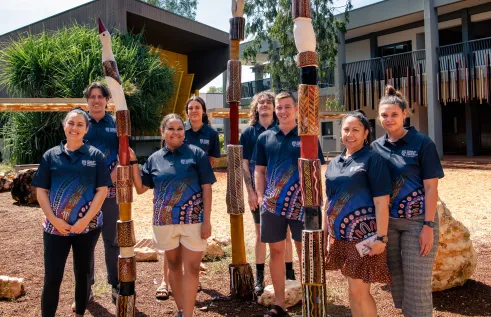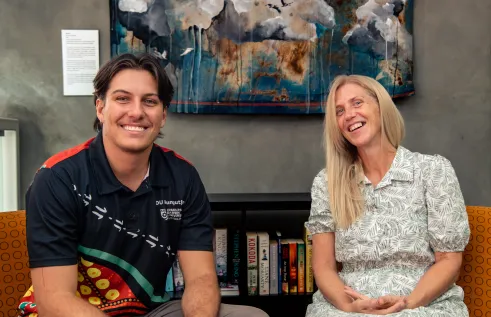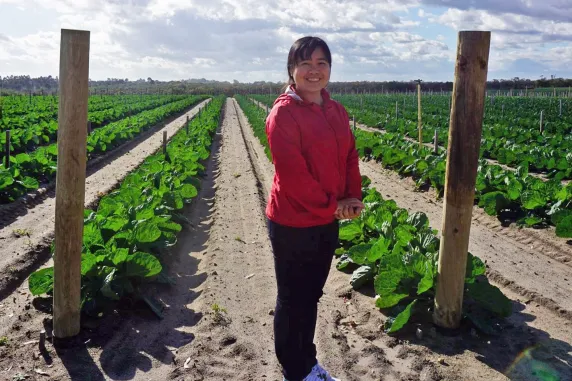News article
Room for biosecurity improvements in farmers’ fields
A new study into the perceptions of Vietnamese farmers towards biosecurity threats in Australia has found that more work needs to be done to improve channels of communication, and to build greater levels of trust with industry and government.
Dr Thi Tam Duong, who has just completed a PhD at Charles Darwin University through the Northern Institute, said that most Vietnamese farmers had a good understanding of biosecurity risks and were motivated to react before and during threats to crops, but the data showed there was scope for improvement.
“My study showed that biosecurity threats are perceived to be a key agricultural risk after weather-related-risk and produce price fluctuations,” Dr Tam said.
“What distinguishes this research from other studies is the exploration of farmer perceptions of biosecurity threats on four dimensions of their production and life: crop output, relationships with other people, relationships with sales agents, and quality of their life.
“One of the findings was that a farmer’s level of English proficiency influences their perception of biosecurity threats. Farmers with higher levels of English are more confident to deal with biosecurity threats. Vietnamese farmers tend to seek advice among themselves rather than from official sources.
“Related to this were low levels of trust in public management, which was particularly evident during the 2014 outbreak of Cucumber Green Mottle Mosaic Virus in the Northern Territory.
“Some farmers reported that they were confused and critical of what they perceived to be inconsistent messaging from government.
“There’s an opportunity for government and industry organisations to engage with Vietnamese horticultural associations, to build better relationships and to build trust.”
Dr Tam said that Australia’s geographic isolation and rigorous quarantine protocols had helped it remain relatively free of pests and infectious disease, but the risk of biosecurity incursions had increased because of migration, globalisation and other factors.
“In 2018, the cost for invasive species in Australia was almost $6.5 billion. In the NT the outbreak of Cucumber Green Mottle Mosaic Virus threatened a $60 million industry.”
Dr Tam, who surveyed 101 Vietnamese farmers in the Northern Territory, Western Australia and South Australia, said her research may have relevance beyond the Vietnamese cohort.
“My research provides a practical understanding of farmer intention to manage biosecurity threats and practical insights for policy makers and other stakeholders.
“The policy implications could be applicable to other English-as-a-second-language groups, such as Thai, Chinese and Cambodian farmers in Australia.”
She said future research could be undertaken to explore “other types” of risk.
“Farmers face production, financial and human risks when operating their business.
“These, and the risk-management strategies they implement to address those risks, are all valid lines of enquiry that need exploring,” she said.
Related Articles

CDU students ready to make their mark at Indigenous Nationals games
For the second year ever, a team of 14 talented and athletic Charles Darwin University (CDU) students will compete at the upcoming Indigenous Nationals games, set to take place in Melbourne next week.
Read more about CDU students ready to make their mark at Indigenous Nationals games
CDU joins celebration of the Barunga Statement’s 35th Anniversary at annual festival
The historic Barunga Statement, a pivotal moment in the journey towards First Nations rights in Australia, commemorates its 35th anniversary this year at the annual Barunga festival.
Read more about CDU joins celebration of the Barunga Statement’s 35th Anniversary at annual festival
First Nations students celebrated in Valedictory Ceremonies
The drive to help their fellow humans is at the forefront of the minds of two Charles Darwin University (CDU) First Nations students graduating this week.
Read more about First Nations students celebrated in Valedictory Ceremonies
